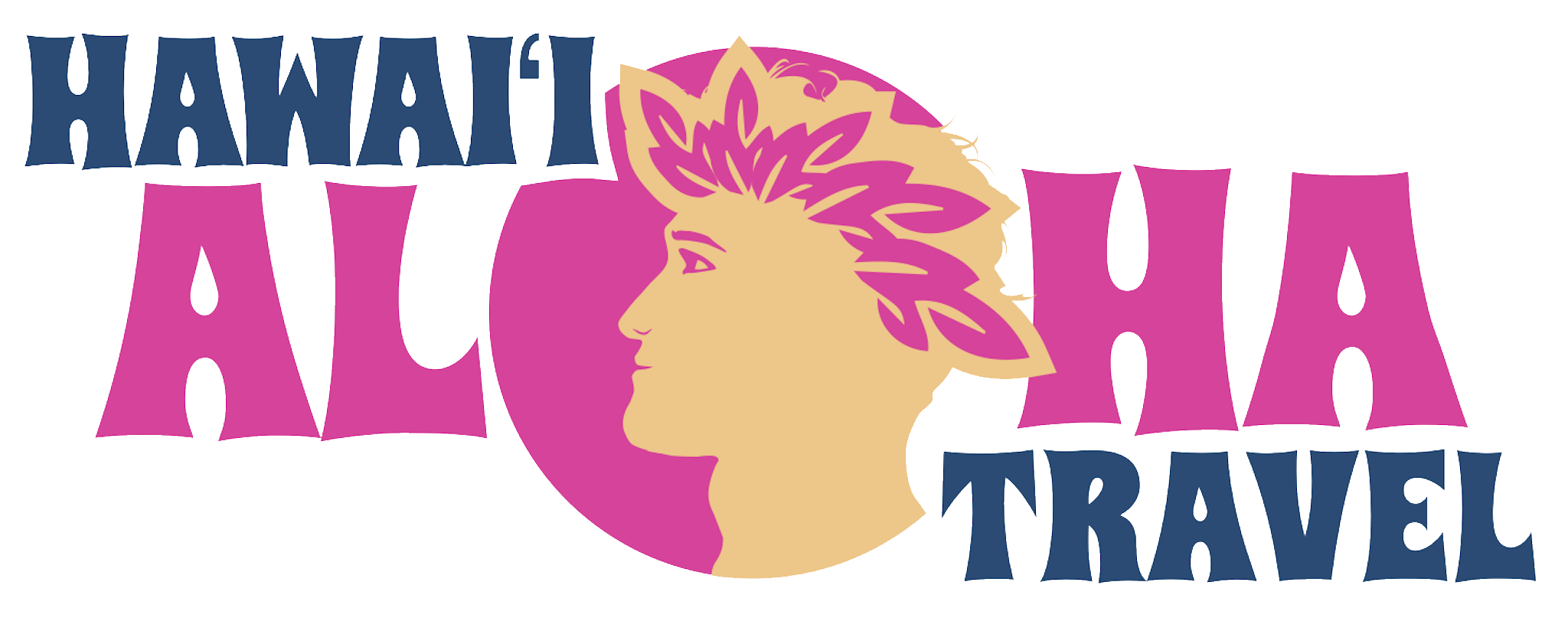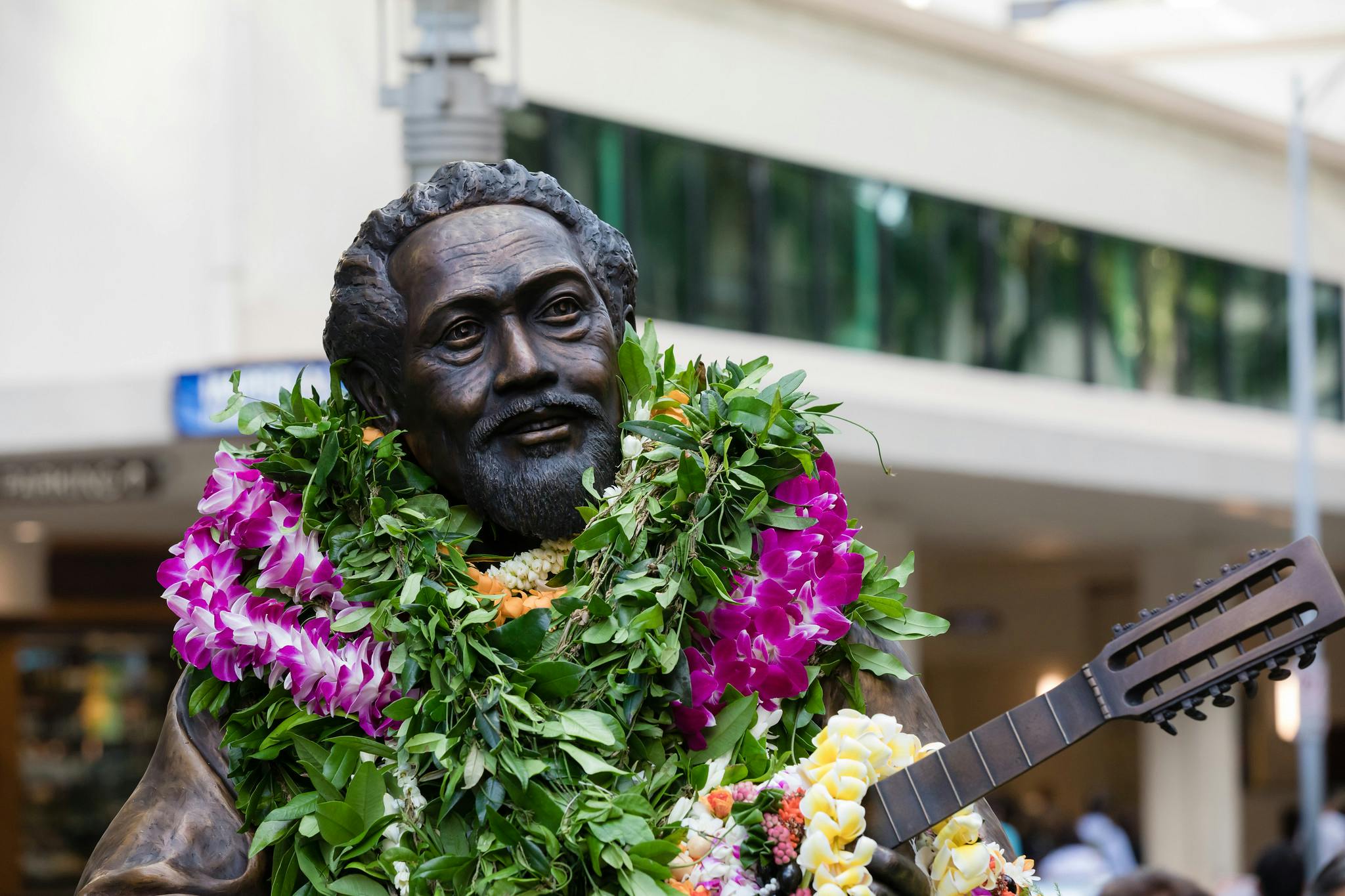A confluence of factors, algorithms, and introspection among them, compel me to write a blog about Hawaiian music. It’s a fool’s errand. Books have been written and graduate studies courses have been taught about Hawaiian music and the major players who constellate the firmament of beloved performers who have forged its modern and mainstream identity. Certainly, none shine brighter or more eternally in that Hawaiian musical universe than Gabby “Pops” Pahinui.
Gabby Pahinui is the first artist to look to for those interested in understanding what makes music from Hawaii “Hawaiian music”. He had become an icon long before his passing in 1980. His slack key tunings, virtuosic technique, and his angelic voice are timeless. His sons carried his legacy faithfully. His live recordings and studio albums have informed the approach and inspiration of thousands of Hawaii musicians.
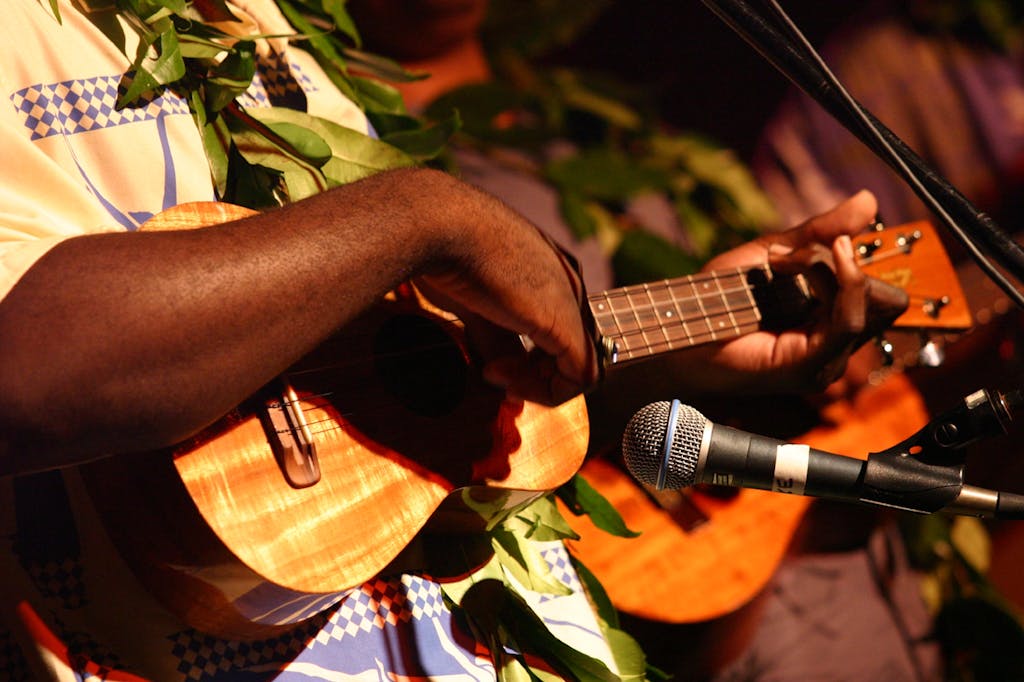
Hawaiian music – what is it?
Hawaiian songs does not get any more authentic than anything Pops ever played onstage, in the studio, or during the countless backyard kanikapila sessions he led or joined in his lifetime. His work is closely acknowledged by scholars and Hawaiian musicians alike as pivotal to the Native Hawaiian cultural renaissance of the 1970s. Gabby’s Rabbit Island Music Festival album released in 1973, which featured his sons and other musicians who would go on to become legends of their own, is a seminal moment in Hawaiian music history.
I was just a kid back then, a haole kid. I don’t have any authority or credibility to speak about Hawaiian music other than as a listener, as someone who grew up hearing Gabby Pahinui’s songs on the radio, and on the records spinning in my family’s home and the homes of innumerable tutus and aunties and uncles. Gabby’s rendition of “Hi’ilawe” gives me chicken-skin even now through my headphones as I listen to it while I write. I’m proud that part of my family legend includes an apocryphal tale of Pops turning up for my younger sister’s first birthday luau. Do I remember that? No, but I’m happy to believe it.
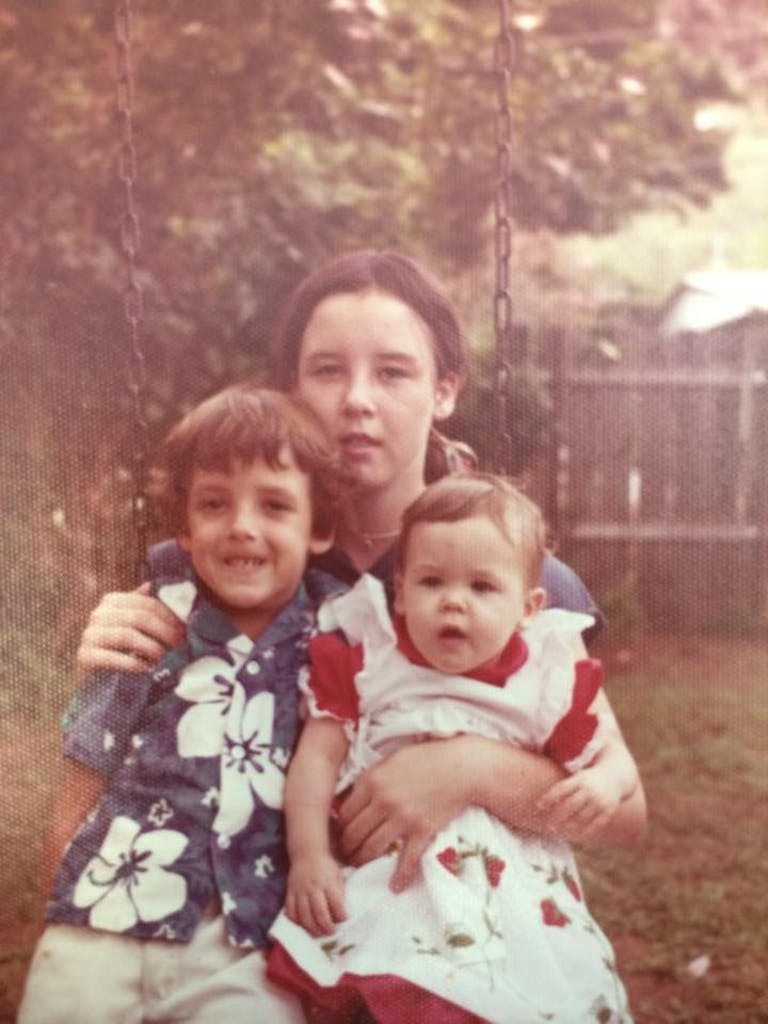
The legacy of Pops
Many years later, I found myself working beside Gabby’s son Bla Pahinui at a large City & County of Honolulu park complex. Bla was an exceptionally kind and generous man, something I can only assume he inherited from his father. We’d play guitar together in the evenings, sharing refreshments and stories about the hundreds of kids that we looked after during hectic Summer Fun programs. He taught me not how to play Hawaiian music, but how to hear it.
It’s important to understand the difference between Hawaiian music and music from Hawaii. Pop superstar Bruno Mars is from Hawaii. Does that make his brand of irresistible beats, deadly hooks, and sick dance moves “Hawaiian music”? Strictly speaking, Bruno is not Hawaiian. Jake Shimabukuro, far and away the world’s most famous ukulele player with millions of fans worldwide as well is not Hawaiian. But he plays Hawaiian music (and Jimi Hendrix and Mozart and so on).
I’ve been a professional musician in Hawaii for nigh-on 30 years. I’ve never performed what I’d consider Hawaiian music in my trade. Hawaiian music has evolved in those decades, now encompassing reggae, pop, and hip-hop tropes and affectations. I’d posit that any music made by Native Hawaiian musicians is, by definition, Hawaiian music.
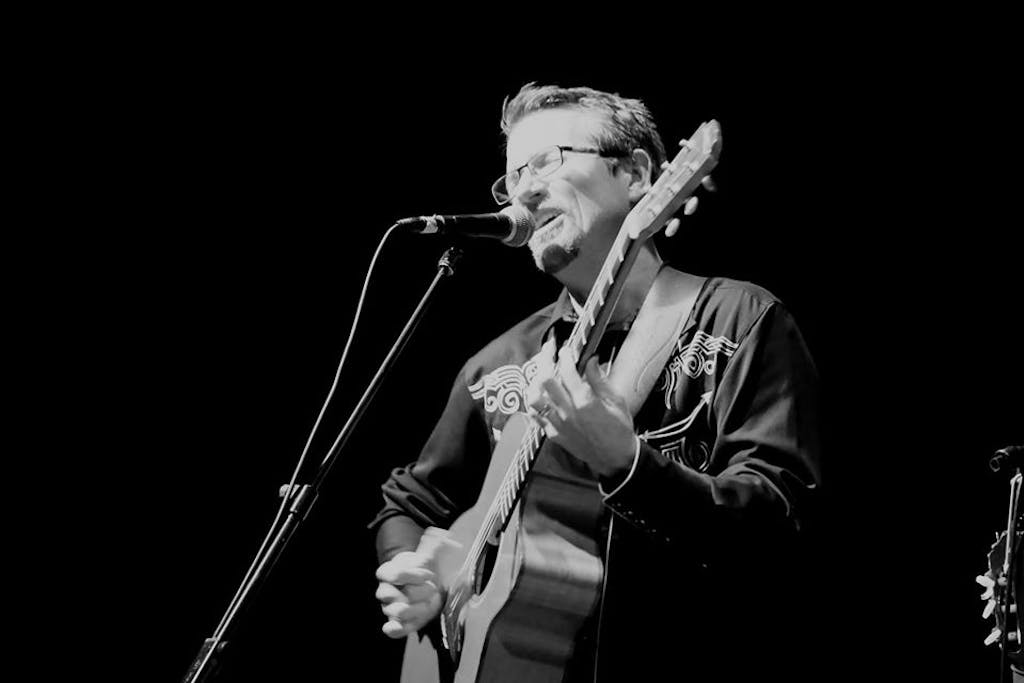
A Hawaiian Airlines in-flight video features a brilliant blues tune video shot in a field of sunflowers on Maui that features Tavana and John Cruz, two contemporary luminaries that are among a large community of musicians who continue to stretch the definition of “Hawaiian music”. Braddaz Iz, Israel Kamakawiwo’ole, captivated the world with his late-night, one-off rendition of the old American musical canon standards “Wonderful World/Over the Rainbow”. It brings tears to millions to this day. (My headphones are giving me chicken skin again).
Still, the music of Gabby “Pops” Pahinui remains, as does the traditional musical pursuit of nahenahe, which the University of Hawaii defines as “soft, sweet, melodious, as music or a gentle voice”. There is no more significant touchstone to the wonderful world of Hawaiian music than Gabby “Pops” Pahinui. There is much to explore about Hawaiian music, and there is no better place to start the journey than with Pops.
We’re here to help, check out our All-Inclusive Hawaii Packages or get help with airfare, picking hotels or activities. If it’s in Hawaii we can make it happen.
Get Help With Planning